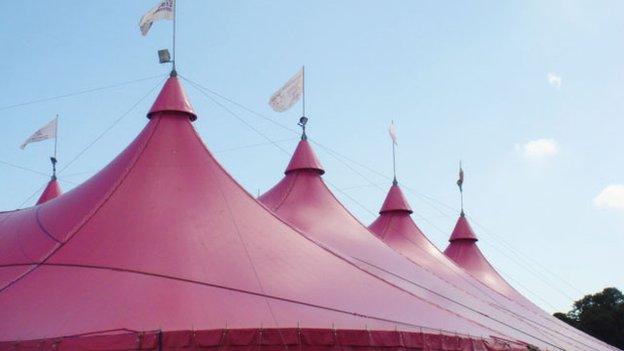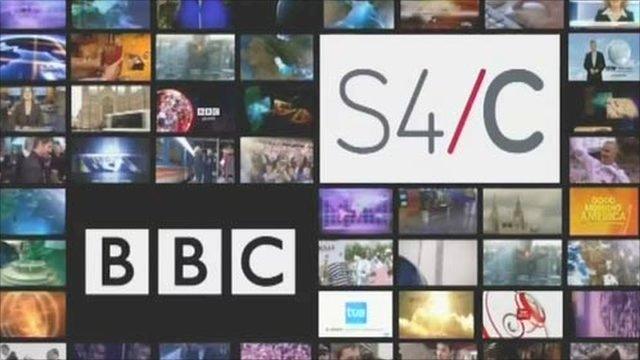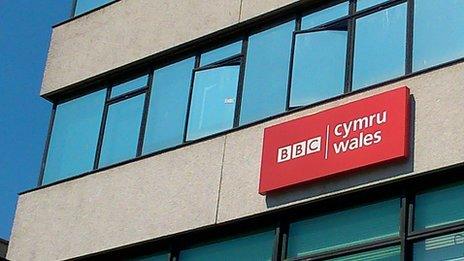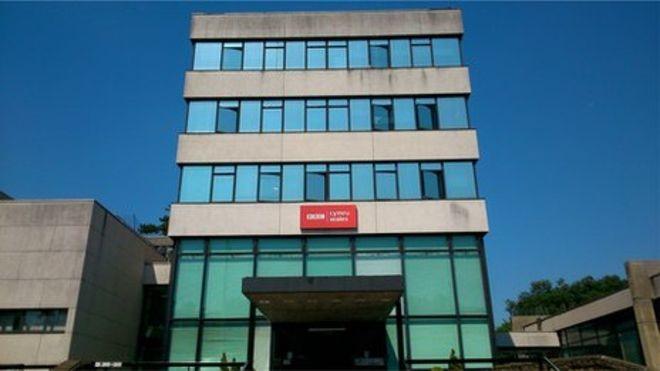Welsh language broadcasting 'has never mattered more'
- Published
Broadcasting debates 'not just for the politicians'
Welsh language broadcasting packs a "real punch" and its role in sustaining culture is growing, BBC Wales' director told the National Eisteddfod.
Rhodri Talfan Davies made his speech after the UK government published a Green Paper, external on the BBC's future.
He said Welsh language broadcasting has "never mattered more".
It comes at the first minister raised concerns over how it would be funded as he claimed the UK government does not care about Welsh language broadcasting.
In his speech, Mr Davies also said fast-changing media habits would demand a "new rulebook".
"The case for the public investment that supports it has never been clearer," he said.
"So let's not slip into an arid economic determinism that ignores the profundity of what is at stake.
"The new world is radically different. It is us that must weave ourselves into our audiences' lives, not vice versa. We have to be where they are - and not expect them to search us out.
"We have to inspire them to turn to the Welsh language - and never assume that they'll turn to us by default. In short, we have to take the language on a journey to our audience."

Mr Davies told the Maes there was "too much at stake" in the BBC charter review
Mr Davies said digital services including the new BBC News app, iPlayer, Welsh language online news service BBC Cymru Fyw, and the broadcaster's partnership with S4C all had a crucial role to play.
He also described BBC Wales' "real progress" in giving greater prominence to the language and Welsh language communities through programmes shown on BBC One such as Hinterland, Country Midwives, Make Me Welsh, Patagonia, Welsh Heartland and Hill Farm.
Mr Davies also urged people to speak up to ensure Welsh language services secure a strong foothold in the internet world, remaining "relevant, valued and used".
And he underlined the importance of the current review of the BBC's Royal Charter to the future of Welsh broadcasting.
"There is simply too much at stake in this charter review. Get it wrong, and we could see public funding reserved solely for a narrow range of rather niche programmes that commercial companies wouldn't be interested in making," he said.
"The BBC would become a sort of creative 'Polyfilla' - there to fill the gaps left by the market. The result, in time, could be to slowly dismantle the BBC and with it the broadcasting system here in Wales too."
- Published16 July 2015

- Published1 April 2014

- Published2 July 2015

- Published24 June 2015
